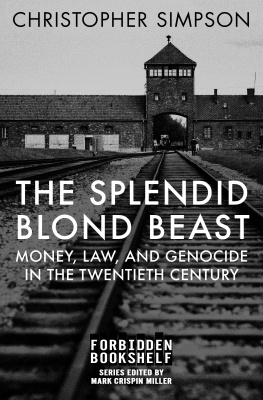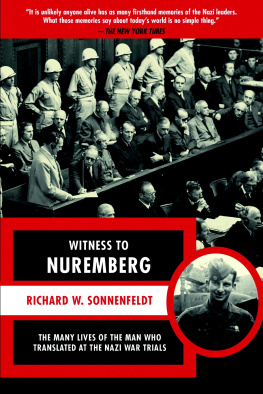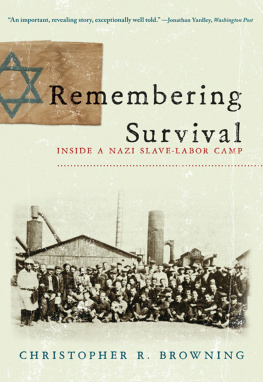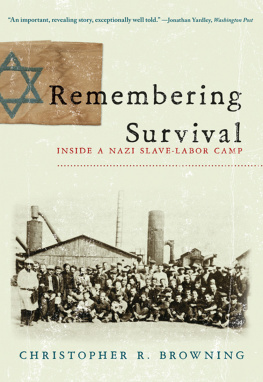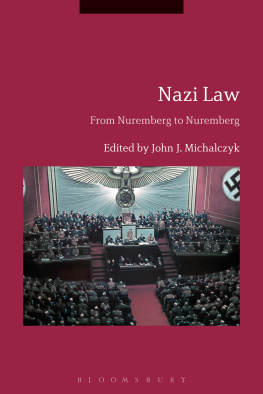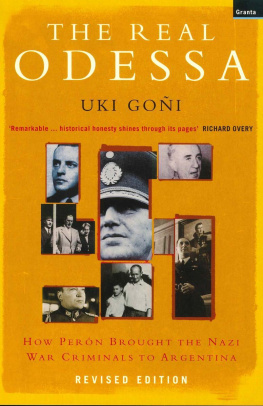The Splendid Blond Beast
Money, Law, and Genocide in the Twentieth Century
Christopher Simpson

There has always been a certain conflict between justice and the law.
HERBERT PELL
Series Introduction
I
We the people seem to have the freest book trade in the world. Certainly we have the biggest. Cruise the mighty Amazon, and you will see so many books for sale in the United States today as would require more than four hundred miles of shelving to display thema bookshelf that would stretch from Bostons Old North Church to Fort McHenry in South Baltimore.
Surely that huge catalog is proof of our extraordinary freedom of expression: The US government does not ban books, because the First Amendment wont allow it. While books are widely banned in states like China and Iran, no book may be forbidden by the US government at any level (although the CIA censors books by former officers). Where books are banned in the United States, the censors tend to be private organizationschurch groups, school boards, and other local (busy) bodies roused to purify the public schools or libraries nearby.
Despite such local prohibitions, we can surely find any book we want. After all, its easy to locate those hot works that once were banned by the government as too obscene to sell, or mail, until the courts ruled otherwise on First Amendment groundsFanny Hill, Howl, Naked Lunch. We also have no trouble finding books banned here and there as antifamily, Satanic, racist, and/or filthy, from Huckleberry Finn to Heather Has Two Mommies to the Harry Potter series, just to name a few.
II
And yet, the fact that those bold books are all in print, and widely read, does not mean that we have the freest book trade in the world. On the contrary: For over half a century, Americas vast literary culture has been disparately policed, and imperceptibly contained, by state and corporate entities well placed and perfectly equipped to wipe out wayward writings. Their ad hoc suppressions through the years have been far more effectual than those quixotic bans imposed on classics like The Catcher in the Rye and Fahrenheit 451. For every one of those bestsellers scandalously purged from some provincial school curriculum, there are many others (we cant know how many) that have been so thoroughly erased that few of us, if any, can remember them, or have ever heard of them.
How have all those books (to quote George Orwell) dropped into the memory hole in these United States? As America does not ban books, other meansless evident, and so less controversialhave been deployed to vaporize them. Some almost never made it into print, as publishers were privately warned off them from on high, either on the grounds of national security or with blunt threats of endless corporate litigation. Other books were signed enthusiasticallythen dumped, as their own publishers mysteriously failed to market them, or even properly distribute them. But it has mainly been the press that stamps out inconvenient books, either by ignoring them, ormost oftenlaughing them off as conspiracy theory, despite their soundness (or because of it).
Once out of print, those books are gone. Even if some few of us have not forgotten them, and one might find used copies here and there, these books have disappeared. Missing from the shelves and never mentioned in the press (and seldom mentioned even in our schools), each book thus neutralized might just as well have been destroyed en masseor never written in the first place, for all their contribution to the public good.
III
The purpose of this series is to bring such vanished books to lifefirst life for those that never saw the light of day, or barely did, and second life for those that got some notice, or even made a splash, then slipped too quickly out of print, and out of mind.
These books, by and large, were made to disappear, or were hastily forgotten, not because they were too lewd, heretical, or unpatriotic for some touchy group of citizens. These books sank without a trace, or faded fast, because they tell the sort of truths that Madison and Jefferson believed our Constitution should protecttruths that the people have the right to know, and needs to know, about our government and other powers that keep us in the dark.
Thus the works on our Forbidden Bookshelf shed new lightfor most of us, its still new lighton the most troubling trends and episodes in US history, especially since World War II: Americas broad use of former Nazis and ex-Fascists in the Cold War; the Kennedy assassinations, and the murders of Martin Luther King Jr., Orlando Letelier, George Polk, and Paul Wellstone; Ronald Reagans Mafia connections, Richard Nixons close relationship with Jimmy Hoffa, and the mobs grip on the NFL; Americas terroristic Phoenix Program in Vietnam, US support for South Americas most brutal tyrannies, and CIA involvement in the Middle East; the secret histories of DuPont, ITT, and other giant US corporations; and the long war waged by Wall Street and its allies in real estate on New York Citys poor and middle class.
The many vanished books on these forbidden subjects (among others) altogether constitute a shadow history of Americaa history that We the People need to know at last, our country having now become a land with billionaires in charge, and millions not allowed to vote, and everybody under full surveillance. Through this series, we intend to pull that necessary history from the shadows at long lastto shed some light on how America got here, and how we might now take it somewhere else.
Mark Crispin Miller
Contents
The Splendid Blond Beast
Friedrich Nietzsche called the aristocratic predators who write societys laws the splendid blond beast precisely because they so often behave as though they are beyond the reach of elementary morality. As he saw things, these elites have cut a path toward a certain sort of excellence consisting mainly of the exercise of power at the expense of others. When dealing with ordinary people, he said, they revert to the innocence of wild animals. We can imagine them returning from an orgy of murder, arson, rape and torture, jubilant and at peace with themselves as though they had committed a fraternity prankconvinced, moreover, that the poets for a long time to come will have something to sing about and to praise. Their brutality was true courage, Nietzsche thought, and the foundation of social order.
Today genocidethe deliberate destruction of a racial, cultural, or political groupis the paramount example of the institutionalized and sanctioned violence of which Nietzsche spoke. Genocide has been a basic mechanism of empire and the national Most genocides in this century have been perpetrated by nation-states upon ethnic minorities living within the states own borders; most of the victims have been children. The people responsible for mass murder have by and large gotten away with what they have done. Most have succeeded in keeping wealth that they looted from their victims; most have never faced trial. Genocide is still difficult to eradicate because it is usually tolerated, at least by those who benefit from it.
The Splendid Blond Beast examines how the social mechanisms of genocide often encourage tacit international cooperation in the escape from justice of those who perpetrated the crime. It looks at the social underpinnings and day-to-day dynamics of two mass crimes, the Armenian Genocide of 191518 and Hitlers Holocaust of the Jews, as well as the U.S. governments response to those tragedies.

